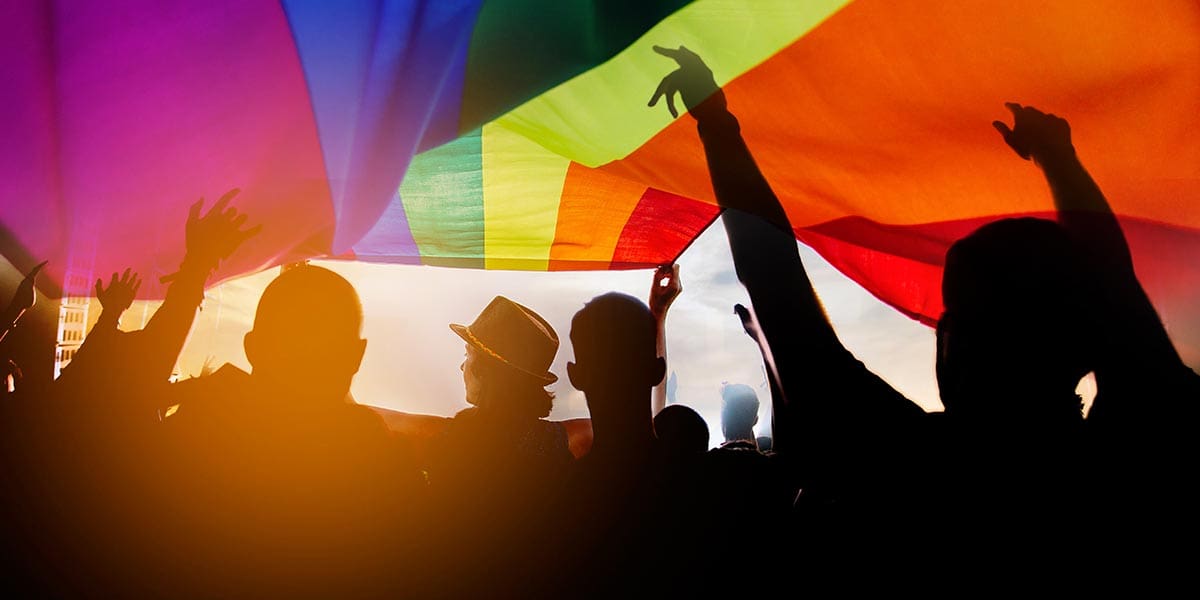69 countries still continue to outlaw homosexuality

Despite considerable progress in legal protection for lesbian, gay and bisexual people, 69 UN member states continue to criminalise consensual same-sex activity.
That’s according to ILGA World (the International Lesbian, Gay, Bisexual, Trans and Intersex Association) which has released an update to its State-Sponsored Homophobia Report.
The report provides data on laws that affect people on the basis of their sexual orientation and paints a vivid picture of the progress and setbacks that happened across the world this year.
ILGA World has been able to verify that of those 69 countries, at least 34 have actively enforced their laws criminalising homosexuality over the past five years, but the number is possibly much higher.
“People may get reported and arrested at any time even just under the suspicion of having sex with someone of the same gender. Courts actively prosecute and sentence them to jail, public flogging, or even death,” said Lucas Ramón Mendos, Research Coordinator at ILGA World and lead author of the report.
Some of the negative provisions advanced across the world in the past year include the proliferation of so-called “LGBT-free zones” in Poland, Indonesia seeking to give a new boost to ‘conversion therapies’ and a reversal of two state-level bans on them in Florida, USA, and laws that could severely restrict the operation of NGOs working with our communities.
Progress continues in other parts of the world
Against all odds, positive developments have taken place even during the past 12 months, despite the challenges imposed by the Covid-19 pandemic.
In June, lawmakers in Gabon voted to reverse one-year-old legislation that outlawed homosexuality and, in July, Sudan repealed the death penalty for consensual same-sex sexual acts. This month, Bhutan’s parliament moved to legalise homosexuality (although this has yet to be approved by the nation’s king).
Germany in May became one of the 4 UN member states which banned ‘conversion therapies’ at the national level, and more jurisdictions in Australia, Canada, Mexico, and the United States followed suit.
Marriage equality is now a reality in 28 UN member states: Costa Rica was the latest one to join the list. 34 UN member states provide for some partnership recognition for same-sex couples, as Monaco and Montenegro voted to legally recognise them during the past 12 months.
As of December 2020, 81 UN member states have laws protecting from discrimination in the workplace on the basis of sexual orientation: twenty years ago, they were only 15.
Below are some of the key figures included in the report.
Criminalisation of consensual same-sex sexual acts
- There are 124 UN member states (64% of UN member states) where consensual same-sex sexual acts between adults are legal.
- 69 UN member states still criminalise consensual same-sex sexual acts between adults (67 by explicit provisions of law, 2 de facto). Additionally, these acts are criminalised in one non-independent territory (Cook Islands, New Zealand) and in certain jurisdictions within two UN member states (Gaza in Palestine and certain provinces in Indonesia)
- In 6 UN member states, the death penalty is the legally prescribed punishment for consensual same-sex sexual acts: Brunei, Iran, Mauritania, Nigeria (12 Northern states only), Saudi Arabia and Yemen
- In 5 additional UN member states – Afghanistan, Pakistan, Qatar, Somalia (including Somaliland) and the United Arab Emirates – certain sources indicate that the death penalty could potentially be imposed for consensual same-sex conduct, but there is less legal certainty on the matter.
Restriction of rights
- At least 42 UN member states have legal barriers to freedom of expression on sexual orientation and gender identity issues
- At least 51 UN member states have legal barriers to the formation, establishment or registration of NGOs working on issues related sexual and gender diversity.
Protection from discrimination
- 11 UN member states contain constitutional provisions that specify sexual orientation in their anti-discrimination protections
- 57 UN member states offer broad protections against discrimination based on sexual orientation – including in education, health, the provision of goods and services and/or housing
- 81 UN member states have laws protecting from workplace discrimination on the basis of sexual orientation
- 48 UN member states impose enhanced criminal penalties for offences motivated by hate towards the victim’s sexual orientation
- 45 UN member states have laws that punish acts of incitement to hatred, discrimination or violence based on sexual orientation
- 4 UN member states (Brazil, Ecuador, Germany, Malta) have nationwide bans against “conversion therapies”. There are subnational bans in 5 other UN member states: Australia, Canada, Mexico, Spain, United States.
Recognition of rainbow families
- 28 UN member states recognise same-sex marriage. One non-UN member jurisdiction (Taiwan) has also legalised same-sex marriage.
- 34 UN member states provide for some partnership recognition
- 28 states have joint adoption laws, while 32 states allow for same-sex second-parent adoption.
Leave a Reply